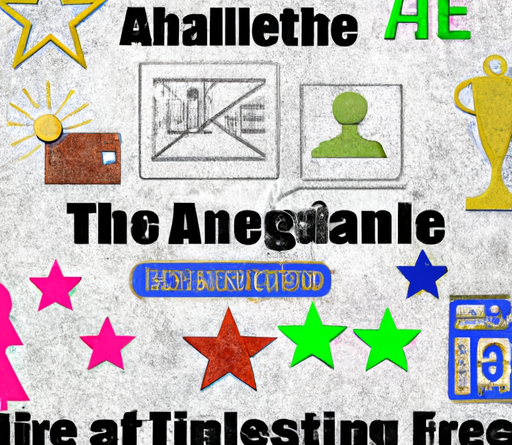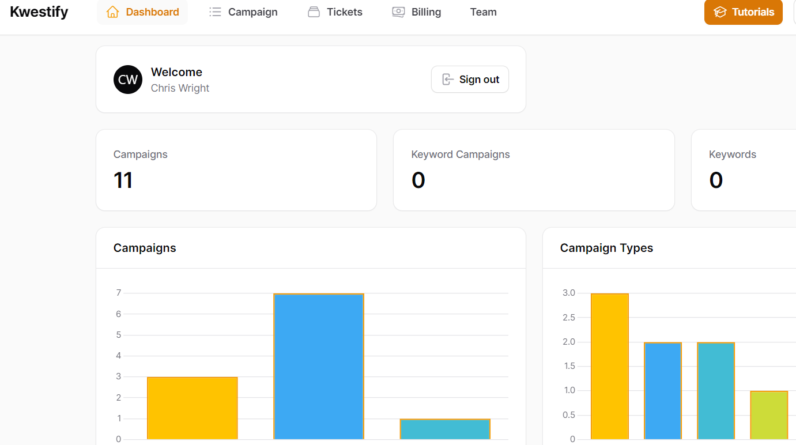
Affiliate marketing is a powerful tool that allows individuals like you to earn passive income by promoting products or services and receiving a commission for every sale or lead generated. But with so many different channels to choose from, it can be overwhelming to know where to start. In this article, we’ll explore the various types of affiliate marketing channels, ranging from blog and social media marketing to email and influencer marketing. By understanding the different options available, you’ll be able to select the channels that align with your strengths and reach your target audience effectively. So, let’s jump in and discover which affiliate marketing channels are right for you. Affiliate marketing is a popular and effective way for businesses to promote and sell their products or services. It involves partnering with individuals or companies, known as affiliates, who promote the business’s products or services in exchange for a commission on any sales made through their referral.
There are several different types of affiliate marketing channels, each with its own unique benefits and strategies. In this article, we will explore some of the most common and effective types of affiliate marketing channels and how they can be utilized to drive sales and grow your business.
Content-based websites
Content-based websites are one of the most traditional and widely-used affiliate marketing channels. These websites primarily focus on creating and publishing high-quality content related to a specific topic or niche. This content can range from informative articles and guides to product reviews and comparisons.
Review websites
Review websites are a popular type of content-based affiliate marketing channel. These websites provide in-depth and unbiased reviews of products or services within a specific industry or niche. By recommending products and providing affiliate links, these websites can drive traffic and sales for businesses.
Coupon websites
Coupon websites are another effective content-based affiliate marketing channel. These websites specialize in providing coupons and discount codes for various products and services. By offering exclusive deals and promotions, coupon websites can attract a large audience and drive sales for businesses.
Niche blogs
Niche blogs are content-based websites that focus on a specific topic or niche. These blogs provide valuable and targeted information to a specific audience. By incorporating affiliate links into their content, niche blogs can generate relevant traffic and drive sales for businesses.
Comparison websites
Comparison websites are a popular choice for consumers looking for the best deals and options available. These websites compare different products or services based on various factors such as price, features, and customer reviews. By providing affiliate links to the recommended products, comparison websites can drive traffic and sales for businesses.
Social media platforms
Social media platforms have become an integral part of people’s lives, and they offer a great opportunity for businesses to reach their target audience. Using social media platforms as affiliate marketing channels can help businesses increase brand visibility, engage with their audience, and drive sales.
Facebook is the largest social media platform, with billions of users worldwide. Through Facebook, businesses can create pages or groups dedicated to their products or services. By sharing engaging and relevant content, businesses can attract followers, drive traffic to their websites, and generate sales through affiliate links.
Instagram is a visually-driven social media platform that is particularly popular among younger audiences. Businesses can create visually appealing posts and stories showcasing their products or services. By using affiliate links in their posts, businesses can drive traffic and sales through Instagram.
Twitter is a fast-paced social media platform that is well-suited for sharing short and concise messages. By tweeting about their products or services and including affiliate links, businesses can quickly reach a large audience and generate sales.
YouTube
YouTube is the largest video-sharing platform with billions of users worldwide. Businesses can create informative and engaging videos showcasing their products or providing tutorials or product reviews. By including affiliate links in the video descriptions or annotations, businesses can drive traffic and sales through YouTube.
Email marketing
Email marketing is a highly effective affiliate marketing channel that allows businesses to directly communicate with their audience. By building an email list and sending targeted emails, businesses can drive traffic and sales through their affiliate links.
Newsletters
Newsletters allow businesses to regularly communicate with their audience and provide valuable information, updates, or promotions. By including affiliate links in their newsletters, businesses can drive traffic and generate sales.
Promotional emails
Promotional emails are specifically designed to promote a product or service to a targeted audience. By highlighting the benefits and features of the product or service and including affiliate links, businesses can drive traffic and sales through promotional emails.
Product recommendations
Product recommendation emails are personalized recommendations sent to customers based on their browsing or purchase history. By recommending relevant products and including affiliate links, businesses can drive targeted traffic and generate sales through product recommendation emails.
Influencer marketing
Influencer marketing is a powerful affiliate marketing channel that involves partnering with influential individuals or content creators to promote products or services. These influencers typically have a large and engaged following, allowing businesses to reach their target audience effectively.
Bloggers
Bloggers are influential individuals who create and publish content through their blogs. By partnering with bloggers in the same niche as your business, you can tap into their audience and drive traffic and sales through their affiliate links.
Vloggers
Vloggers, also known as video bloggers, create and publish videos on platforms like YouTube. By partnering with vloggers who create content related to your industry or niche, you can reach their audience and drive sales through their affiliate links.
Podcasters
Podcasters create and publish audio content through podcasts. By partnering with podcasters who have a relevant audience, you can tap into their listeners and drive traffic and sales through their affiliate links.
Search engine optimization (SEO)
Search engine optimization (SEO) is a crucial aspect of digital marketing and can significantly impact a business’s visibility and organic traffic. By optimizing their website and content for search engines, businesses can drive targeted traffic and generate sales through organic search results.
Organic SEO
Organic SEO focuses on optimizing a website and its content to rank higher in organic search results. By identifying relevant keywords, creating high-quality content, and optimizing website elements, businesses can increase their visibility and attract organic traffic, leading to potential sales through affiliate links.
Local SEO
Local SEO focuses on optimizing a website for local search results. This is particularly important for businesses with physical locations or those targeting a specific geographic area. By including local keywords, optimizing Google My Business listings, and earning local citations, businesses can attract local customers and drive sales through affiliate links.
Technical SEO
Technical SEO involves optimizing a website’s technical aspects to improve its visibility and user experience. This includes optimizing website speed, mobile-friendliness, site architecture, and implementing structured data. By improving technical SEO, businesses can improve their search engine rankings, attract organic traffic, and generate sales through affiliate links.
eCommerce SEO
eCommerce SEO focuses on optimizing an online store to drive organic traffic and sales. This involves optimizing product pages, providing compelling product descriptions, implementing structured data for product information, and optimizing the checkout process. By improving eCommerce SEO, businesses can attract potential customers and generate sales through affiliate links.
Pay-per-click (PPC) advertisements
Pay-per-click (PPC) advertisements allow businesses to display their ads on search engines or social media platforms and pay only when someone clicks on their ad. By implementing a well-planned PPC campaign, businesses can drive targeted traffic and generate sales through their affiliate links.
Google AdWords
Google AdWords is an advertising platform that allows businesses to display their ads on the Google search engine and its partner websites. By bidding on relevant keywords and creating compelling ad copy, businesses can drive targeted traffic to their website and generate sales through affiliate links.
Bing Ads
Bing Ads is a pay-per-click advertising platform that allows businesses to display their ads on the Bing search engine and its partner websites. Although Bing has a smaller user base than Google, it can still be a valuable PPC channel, especially for targeting specific demographics or industries.
Facebook Ads
Facebook Ads is a powerful advertising platform that allows businesses to display their ads on the Facebook social media platform. With extensive targeting options, businesses can reach their ideal audience and drive traffic and sales through affiliate links.
Instagram Ads
Instagram Ads is a feature of the Facebook Ads platform that allows businesses to display their ads on the Instagram social media platform. By leveraging the visual nature of Instagram and targeting specific demographics or interests, businesses can attract potential customers and generate sales through affiliate links.
Video marketing
Video marketing involves creating and sharing videos to promote products or services. With the rise of video-sharing platforms like YouTube, businesses can utilize video marketing as an effective affiliate marketing channel.
Product reviews
Product review videos are a popular type of video marketing that involves reviewing and showcasing products or services. By providing informative and unbiased reviews and including affiliate links in the video descriptions, businesses can drive traffic and generate sales.
Tutorials
Tutorial videos provide step-by-step instructions or demonstrations on how to use a product or complete a task. By creating tutorial videos that showcase a product’s features or offer valuable information, businesses can attract potential customers and generate sales through affiliate links.
Demo videos
Demo videos showcase a product’s features and benefits in action. By creating visually appealing and engaging demo videos and including affiliate links, businesses can drive traffic and sales through video marketing.
Mobile app marketing
Mobile app marketing involves promoting mobile applications to drive downloads and engagement. With billions of mobile app users worldwide, businesses can leverage mobile app marketing as an affiliate marketing channel.
In-app ads
In-app ads are advertisements displayed within mobile applications. By incorporating in-app ads into popular or relevant mobile apps, businesses can reach a large and engaged audience and drive traffic and sales through affiliate links.
Push notifications
Push notifications are messages sent to users’ mobile devices to engage and retain them. By sending targeted and relevant push notifications that include affiliate links, businesses can drive traffic and generate sales through mobile app marketing.
App store optimization
App store optimization (ASO) involves optimizing a mobile app’s visibility and ranking within app stores. By optimizing app titles, descriptions, keywords, and visuals, businesses can increase their app’s visibility, attract more downloads, and generate sales through affiliate links.
Coupon and deal sites
Coupon and deal sites specialize in providing discounts, coupons, and deals to consumers. Businesses can leverage these sites as affiliate marketing channels to attract price-conscious customers and generate sales.
Deal aggregator sites
Deal aggregator sites collect and display deals and discounts from various sources, making it easier for consumers to find the best deals available. By partnering with deal aggregator sites and offering exclusive discounts or deals, businesses can drive traffic and generate sales through affiliate links.
Coupon code directories
Coupon code directories provide a comprehensive list of coupon codes for various products or services. By including their coupon codes in these directories, businesses can attract customers looking for discounts and drive sales through affiliate links.
Cashback websites
Cashback websites offer users cashback or rewards for making purchases through their affiliate links. By partnering with cashback websites and offering attractive cashback rates, businesses can incentivize customers to make purchases and generate sales.
Native advertising
Native advertising involves promoting products or services in a way that seamlessly integrates with the surrounding content. Native ads are designed to be non-disruptive and blend in with the platform or website where they are displayed.
Sponsored content
Sponsored content refers to articles, blog posts, videos, or other forms of content that are created for the purpose of promoting a product or service. By partnering with publishers or content creators to create sponsored content that includes affiliate links, businesses can drive traffic and sales through native advertising.
Recommended articles
Recommended articles are suggested content that appears alongside the main content on a website or platform. By having their products or services recommended in related articles and including affiliate links, businesses can drive targeted traffic and generate sales through native advertising.
In-feed ads
In-feed ads are advertisements that appear within the stream of content on a website or platform. By designing ads that resemble the surrounding content and including affiliate links, businesses can attract users’ attention and drive traffic and sales through native advertising.
In conclusion, affiliate marketing offers a wide range of channels and strategies for businesses to promote and sell their products or services. By utilizing the various types of affiliate marketing channels, businesses can effectively reach their target audience, drive traffic, and generate sales. Whether it’s through content-based websites, social media platforms, email marketing, influencer marketing, search engine optimization, pay-per-click advertisements, video marketing, mobile app marketing, coupon and deal sites, or native advertising, businesses can leverage the power of affiliate marketing to grow their brand and achieve their marketing goals.






